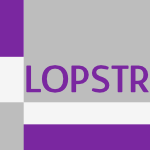103 papers:
 PEPM-2015-KootH #analysis #exception #functional #higher-order #semantics #strict #type system
PEPM-2015-KootH #analysis #exception #functional #higher-order #semantics #strict #type system- Type-based Exception Analysis for Non-strict Higher-order Functional Languages with Imprecise Exception Semantics (RK, JH), pp. 127–138.
 PEPM-2015-VerstoepH #analysis #functional #higher-order #strict
PEPM-2015-VerstoepH #analysis #functional #higher-order #strict- Polyvariant Cardinality Analysis for Non-strict Higher-order Functional Languages: Brief Announcement (HV, JH), pp. 139–142.
 ASPLOS-2014-KastureS #named #performance #strict
ASPLOS-2014-KastureS #named #performance #strict- Ubik: efficient cache sharing with strict qos for latency-critical workloads (HK, DS), pp. 729–742.
 CIAA-J-2012-Crespi-ReghizziP13 #strict #testing
CIAA-J-2012-Crespi-ReghizziP13 #strict #testing- Strict Local Testability with Consensus Equals Regularity, and Other Properties (SCR, PSP), pp. 747–764.
 DLT-2013-Blanchet-SadriW #bound #strict
DLT-2013-Blanchet-SadriW #bound #strict- Strict Bounds for Pattern Avoidance (FBS, BW), pp. 106–117.
 ICALP-v2-2013-HoeferW #strict
ICALP-v2-2013-HoeferW #strict- Locally Stable Marriage with Strict Preferences (MH, LW), pp. 620–631.
 ICML-c2-2013-Rebagliati #clustering #fault #normalisation #strict
ICML-c2-2013-Rebagliati #clustering #fault #normalisation #strict- Strict Monotonicity of Sum of Squares Error and Normalized Cut in the Lattice of Clusterings (NR), pp. 163–171.
 STOC-2012-BrodalLT #fibonacci #strict
STOC-2012-BrodalLT #fibonacci #strict- Strict fibonacci heaps (GSB, GL, RET), pp. 1177–1184.
 CIAA-2012-Crespi-ReghizziP #strict #testing
CIAA-2012-Crespi-ReghizziP #strict #testing- Strict Local Testability with Consensus Equals Regularity (SCR, PSP), pp. 113–124.
 ICALP-v1-2012-RabinMMY #performance #strict #transaction #validation
ICALP-v1-2012-RabinMMY #performance #strict #transaction #validation- Strictly-Black-Box Zero-Knowledge and Efficient Validation of Financial Transactions (MOR, YM, SM, MY), pp. 738–749.
 CIAA-2011-BechetDF #strict
CIAA-2011-BechetDF #strict- Categorial Grammars with Iterated Types form a Strict Hierarchy of k-Valued Languages (DB, AJD, AF), pp. 42–52.
 PPDP-2011-ChristiansenS #polymorphism #strict
PPDP-2011-ChristiansenS #polymorphism #strict- Minimally strict polymorphic functions (JC, DS), pp. 53–64.
 PADL-2011-Christiansen #named #strict
PADL-2011-Christiansen #named #strict- Sloth — A Tool for Checking Minimal-Strictness (JC), pp. 160–174.
 SAS-2010-SchrijversM #data flow #strict
SAS-2010-SchrijversM #data flow #strict- Strictness Meets Data Flow (TS, AM), pp. 439–454.
 FLOPS-2010-AlvezL #axiom #similarity #strict
FLOPS-2010-AlvezL #axiom #similarity #strict- A Complete Axiomatization of Strict Equality (JÁ, FJLF), pp. 118–133.
 HPDC-2010-YuanYWZ #named #parallel #predict #scheduling #strict
HPDC-2010-YuanYWZ #named #parallel #predict #scheduling #strict- PV-EASY: a strict fairness guaranteed and prediction enabled scheduler in parallel job scheduling (YY, GY, YW, WZ), pp. 240–251.
 ISSTA-2010-BaoZLZX #analysis #data flow #dependence #information management #strict
ISSTA-2010-BaoZLZX #analysis #data flow #dependence #information management #strict- Strict control dependence and its effect on dynamic information flow analyses (TB, YZ, ZL, XZ, DX), pp. 13–24.
 LICS-2010-He #finite #first-order #on the #quantifier #strict
LICS-2010-He #finite #first-order #on the #quantifier #strict- On the Strictness of the First-Order Quantifier Structure Hierarchy over Finite Structures (YH), pp. 170–178.
 OOPSLA-2009-BravenboerS #analysis #declarative #points-to #specification #strict
OOPSLA-2009-BravenboerS #analysis #declarative #points-to #specification #strict- Strictly declarative specification of sophisticated points-to analyses (MB, YS), pp. 243–262.
 FLOPS-2008-Yokouchi #algorithm #analysis #difference #lazy evaluation #strict
FLOPS-2008-Yokouchi #algorithm #analysis #difference #lazy evaluation #strict- Strictness Analysis Algorithms Based on an Inequality System for Lazy Types (HY), pp. 255–271.
 ICPR-2008-KanataniS #algorithm #ml #strict
ICPR-2008-KanataniS #algorithm #ml #strict- Compact algorithm for strictly ML ellipse fitting (KK, YS), pp. 1–4.
 CSL-2007-WeisI #strict #theorem #word
CSL-2007-WeisI #strict #theorem #word- Structure Theorem and Strict Alternation Hierarchy for FO2 on Words (PW, NI), pp. 343–357.
 RTA-2007-EchahedP #confluence #pointer #strict #term rewriting
RTA-2007-EchahedP #confluence #pointer #strict #term rewriting- Non Strict Confluent Rewrite Systems for Data-Structures with Pointers (RE, NP), pp. 137–152.
 KR-2006-SardinaGLL #nondeterminism #on the #strict
KR-2006-SardinaGLL #nondeterminism #on the #strict- On the Limits of Planning over Belief States under Strict Uncertainty (SS, GDG, YL, HJL), pp. 463–471.
 SIGIR-2006-TrotmanL #query #strict
SIGIR-2006-TrotmanL #query #strict- Strict and vague interpretation of XML-retrieval queries (AT, ML), pp. 709–710.
 PPDP-2006-RooverBD #behaviour #fuzzy #logic #similarity #strict #validation
PPDP-2006-RooverBD #behaviour #fuzzy #logic #similarity #strict #validation- Combining fuzzy logic and behavioral similarity for non-strict program validation (CDR, JB, TD), pp. 15–26.
 IFL-2005-EekelenM #proving #strict #tool support
IFL-2005-EekelenM #proving #strict #tool support- Proof Tool Support for Explicit Strictness (MCJDvE, MdM), pp. 37–54.
 IFL-2004-Trancon-y-Widemann #evaluation #recursion #strict #virtual machine
IFL-2004-Trancon-y-Widemann #evaluation #recursion #strict #virtual machine- V->M: A Virtual Machine for Strict Evaluation of (Co)Recursive Functions (BTyW), pp. 90–107.
 ICFP-2003-EnnalsJ #adaptation #evaluation #source code #strict
ICFP-2003-EnnalsJ #adaptation #evaluation #source code #strict- Optimistic evaluation: an adaptive evaluation strategy for non-strict programs (RE, SLPJ), pp. 287–298.
 DAC-2002-DanielP #distributed #order #reduction #strict
DAC-2002-DanielP #distributed #order #reduction #strict- Model order reduction for strictly passive and causal distributed systems (LD, JRP), pp. 46–51.
 SAS-2002-WhaleyL #analysis #performance #points-to #strict
SAS-2002-WhaleyL #analysis #performance #points-to #strict- An Efficient Inclusion-Based Points-To Analysis for Strictly-Typed Languages (JW, MSL), pp. 180–195.
 STOC-2002-BarakL #polynomial #simulation #strict
STOC-2002-BarakL #polynomial #simulation #strict- Strict polynomial-time in simulation and extraction (BB, YL), pp. 484–493.
 ICFP-2002-GlynnSSS #analysis #exception #strict
ICFP-2002-GlynnSSS #analysis #exception #strict- Exception analysis for non-strict languages (KG, PJS, MS, HS), pp. 98–109.
 SAS-2001-GlynnSS #analysis #constraints #effectiveness #strict
SAS-2001-GlynnSS #analysis #constraints #effectiveness #strict- Effective Strictness Analysis with HORN Constraints (KG, PJS, MS), pp. 73–92.
 SAS-2000-ClarkHH #analysis #graph grammar #safety #strict
SAS-2000-ClarkHH #analysis #graph grammar #safety #strict- Safety of Strictness Analysis via Term Graph Rewriting (DC, CH, SH), pp. 95–114.
 STOC-2000-RasalaW #network #strict
STOC-2000-RasalaW #network #strict- Strictly non-blocking WDM cross-connects for heterogeneous networks (AR, GTW), pp. 514–523.
 UML-2000-AtkinsonK #how #strict #why
UML-2000-AtkinsonK #how #strict #why- Strict Profiles: Why and How (CA, TK), pp. 309–322.
 CSL-1999-Tobies #logic #strict
CSL-1999-Tobies #logic #strict- A NExpTime-Complete Description Logic Strictly Contained in C2 (ST), pp. 292–306.
 IFL-1998-HallBTK #functional #parallel #semantics #strict #towards
IFL-1998-HallBTK #functional #parallel #semantics #strict #towards- Towards an Operational Semantics for a Parallel Non-Strict Functional Language (JGH, CABF, PWT, DJK), pp. 54–71.
 LOPSTR-1998-GabricGS #analysis #constraints #strict #theorem proving
LOPSTR-1998-GabricGS #analysis #constraints #strict #theorem proving- Strictness Analysis as Finite-Domain Constraint Solving (TG, KG, HS), pp. 255–270.
 POPL-1998-Jensen #polymorphism #strict
POPL-1998-Jensen #polymorphism #strict- Inference of Polymorphic and Conditional Strictness Properties (TPJ), pp. 209–221.
 SAC-1998-HallamY #fuzzy #product line #pseudo #strict
SAC-1998-HallamY #fuzzy #product line #pseudo #strict- Families of fuzzy implication operators within measure M1 and their pseudo-strict (NH, KMY), pp. 262–266.
 ASPLOS-1998-KrintzCLZ #execution #mobile #source code #strict #using
ASPLOS-1998-KrintzCLZ #execution #mobile #source code #strict #using- Overlapping Execution with Transfer Using Non-Strict Execution for Mobile Programs (CK, BC, HBL, BGZ), pp. 159–169.
 CADE-1998-BachmairG #strict
CADE-1998-BachmairG #strict- Strict Basic Superposition (LB, HG), pp. 160–174.
 SAS-1997-PanitzS #automation #functional #higher-order #named #proving #source code #strict #termination
SAS-1997-PanitzS #automation #functional #higher-order #named #proving #source code #strict #termination- TEA: Automatically Proving Termination of Programs in a Non-strict Higher-Order Functional Language (SEP, MSS), pp. 345–360.
 ICALP-1997-Wilke #first-order #logic #strict
ICALP-1997-Wilke #first-order #logic #strict- Star-Free Picture Expressions are Strictly Weaker Than First-Order Logic (TW), pp. 347–357.
 TLCA-1997-DamianiG #algorithm #strict
TLCA-1997-DamianiG #algorithm #strict- An Inference Algorithm for Strictness (FD, PG), pp. 129–146.
 ALP-1996-FassbenderM #decidability #recursion #strict
ALP-1996-FassbenderM #decidability #recursion #strict- A Strict Border for the Decidability of E-Unification for Recursive Functions (HF, SM), pp. 194–208.
 PEPM-1995-Monsuez #abstract interpretation #strict #type inference #using
PEPM-1995-Monsuez #abstract interpretation #strict #type inference #using- Using Abstract Interpretation to Define a Strictness Type Inference System (BM), pp. 122–133.
 SAS-1995-Coorg #clustering #code generation #concurrent #functional #multi #strict #thread
SAS-1995-Coorg #clustering #code generation #concurrent #functional #multi #strict #thread- Partitioning Non-strict Functional Languages for Multi-threaded Code Generation (SRC), pp. 82–99.
 SAS-1995-SerranoW #compilation #functional #named #optimisation #strict
SAS-1995-SerranoW #compilation #functional #named #optimisation #strict- Bigloo: A Portable and Optimizing Compiler for Strict Functional Languages (MS, PW), pp. 366–381.
 SAS-1995-Vedrine #abstract interpretation #analysis #strict
SAS-1995-Vedrine #abstract interpretation #analysis #strict- Binding-Time Analysis and Strictness Analysis by Abstract Interpretation (FV), pp. 400–417.
 FPCA-1995-AdityaAS #semantics #strict
FPCA-1995-AdityaAS #semantics #strict- Semantics of Barriers in a Non-Strict, Implicitly-Parallel Language (SA, A, JES), pp. 204–215.
 FPCA-1995-SchauserG #how #question #source code #strict
FPCA-1995-SchauserG #how #question #source code #strict- How Much Non-Strictness do Lenient Programs Require? (KES, SCG), pp. 216–225.
 POPL-1995-SansomJ #functional #higher-order #profiling #strict
POPL-1995-SansomJ #functional #higher-order #profiling #strict- Time and Space Profiling for Non-Strict Higher-Order Functional Languages (PMS, SLPJ), pp. 355–366.
 POPL-1995-SchauserCG #algorithm #clustering #constraints #source code #strict #thread
POPL-1995-SchauserCG #algorithm #clustering #constraints #source code #strict #thread- Separation Constraint Partitioning — A New Algorithm for Partitioning Non-strict Programs into Sequential Threads (KES, DEC, SCG), pp. 259–271.
 TLCA-1995-PolS #proving #strict #termination
TLCA-1995-PolS #proving #strict #termination- Strict Functionals for Termination Proofs (JvdP, HS), pp. 350–364.
 ESOP-1994-HankinM #analysis #lazy evaluation #strict #type inference
ESOP-1994-HankinM #analysis #lazy evaluation #strict #type inference- Lazy Type Inference for the Strictness Analysis of Lists (CH, DLM), pp. 257–271.
 SAS-1994-Consel #analysis #fixpoint #performance #strict
SAS-1994-Consel #analysis #fixpoint #performance #strict- Fast Strictness Analysis Via Symbolic Fixpoint Iteration (CC), pp. 423–431.
 SAS-1994-GrasH #independence #strict #using
SAS-1994-GrasH #independence #strict #using- Extracting Non-Strict Independent And-Parallelism Using Sharing and Freeness Information (DCG, MVH), pp. 297–313.
 SAS-1994-Henglein #analysis #fixpoint #strict #type system
SAS-1994-Henglein #analysis #fixpoint #strict #type system- Iterative Fixed Point Computation for Type-Based Strictness Analysis (FH), pp. 395–407.
 SAS-1994-JensenHR #analysis #haskell #performance #strict
SAS-1994-JensenHR #analysis #haskell #performance #strict- Efficient Strictness Analysis of Haskell (KDJ, PH, MR), pp. 246–362.
 SAS-1994-Solberg #analysis #strict
SAS-1994-Solberg #analysis #strict- Strictness and Totality Analysis (KLS), pp. 408–422.
 LFP-1994-SastryC #functional #parallel #strict
LFP-1994-SastryC #functional #parallel #strict- Parallel Destructive Updating in Strict Functional Languages (AVSS, WDC), pp. 263–272.
 POPL-1994-HankinM #algorithm #analysis #strict #type inference
POPL-1994-HankinM #algorithm #analysis #strict #type inference- Deriving Algorithms From Type Inference Systems: Application to Strictness Analysis (CH, DLM), pp. 202–212.
 ILPS-1994-BuenoBH #analysis #automation #effectiveness #parallel #strict
ILPS-1994-BuenoBH #analysis #automation #effectiveness #parallel #strict- Effectiveness of Global Analysis in Strict Independence-Based Automatic Parallelization (FB, MJGdlB, MVH), pp. 320–336.
 PODS-1993-RastogiKS #database #strict
PODS-1993-RastogiKS #database #strict- Strict Histories in Object-Based Database Systems (RR, HFK, AS), pp. 288–299.
 PEPM-1993-Seward #analysis #polymorphism #strict #using
PEPM-1993-Seward #analysis #polymorphism #strict #using- Polymorphic Strictness Analysis using Frontiers (JS), pp. 186–193.
 WSA-1993-Benton #algebra #data type #lazy evaluation #strict
WSA-1993-Benton #algebra #data type #lazy evaluation #strict- Strictness Properties of Lazy Algebraic Datatypes (PNB), pp. 206–217.
 WSA-1993-NielsonN #analysis #strict
WSA-1993-NielsonN #analysis #strict- Finiteness Conditions for Strictness Analysis (FN, HRN), pp. 194–205.
 FPCA-1993-Nocker #analysis #reduction #strict #using
FPCA-1993-Nocker #analysis #reduction #strict #using- Strictness Analysis using Abstract Reduction (EN), pp. 255–265.
 FPCA-1993-SastryCA #analysis #functional #strict
FPCA-1993-SastryCA #analysis #functional #strict- Order-of-evaluation Analysis for Destructive Updates in Strict Functional Languages with Flat Aggregates (AVSS, WDC, ZMA), pp. 266–275.
 PLILP-1993-BurnM #analysis #compilation #correctness #optimisation #proving #strict
PLILP-1993-BurnM #analysis #compilation #correctness #optimisation #proving #strict- Proving the Correctness of Compiler Optimizations Based on Strictness Analysis (GLB, DLM), pp. 346–364.
 WSA-1992-Baker-Finch #analysis #logic #strict
WSA-1992-Baker-Finch #analysis #logic #strict- Relevant Logic and Strictness Analysis (CABF), pp. 221–228.
 LFP-1992-NeubergerM #analysis #deduction #power of #precise #strict
LFP-1992-NeubergerM #analysis #deduction #power of #precise #strict- A Precise Relationship Between the Deductive Power of Forward and Backward Strictness Analysis (MN, PM), pp. 127–138.
 LFP-1992-TraubCS #analysis #clustering #source code #strict #thread
LFP-1992-TraubCS #analysis #clustering #source code #strict #thread- Global Analysis for Partitioning Non-Strict Programs into Sequential Threads (KRT, DEC, KES), pp. 324–334.
 PLILP-1992-Rosendahl #analysis #attribute grammar #strict
PLILP-1992-Rosendahl #analysis #attribute grammar #strict- Strictness Analysis for Attribute Grammars (MR), pp. 145–157.
 LICS-1992-Jensen #analysis #strict
LICS-1992-Jensen #analysis #strict- Disjunctive Strictness Analysis (TPJ), pp. 174–185.
 PLDI-1991-Launchbury #analysis #strict
PLDI-1991-Launchbury #analysis #strict- Strictness and Binding-Time Analyses: Two for the Price of One (JL), pp. 80–91.
 ICALP-1991-ErnoultM #analysis #strict
ICALP-1991-ErnoultM #analysis #strict- Uniform Ideals and Strictness Analysis (CE, AM), pp. 47–59.
 FPCA-1991-BarthNA #functional #named #parallel #strict
FPCA-1991-BarthNA #functional #named #parallel #strict- M-Structures: Extending a Parallel, Non-strict, Functional Language with State (PSB, RSN, A), pp. 538–568.
 FPCA-1991-Jensen #analysis #logic #strict
FPCA-1991-Jensen #analysis #logic #strict- Strictness Analysis in Logical Form (TPJ), pp. 352–366.
 FPCA-1991-JonesL #functional #strict
FPCA-1991-JonesL #functional #strict- Unboxed Values as First Class Citizens in a Non-Strict Functional Language (SLPJ, JL), pp. 636–666.
 FPCA-1991-Traub #architecture #code generation #data flow #multi #source code #strict #thread
FPCA-1991-Traub #architecture #code generation #data flow #multi #source code #strict #thread- Multi-thread Code Generation for Dataflow Architectures from Non-Strict Programs (KRT), pp. 73–101.
 POPL-1991-AbramskyJ #analysis #approach #higher-order #polymorphism #relational #strict
POPL-1991-AbramskyJ #analysis #approach #higher-order #polymorphism #relational #strict- A Relational Approach to Strictness Analysis for Higher-Order Polymorphic Functions (SA, TPJ), pp. 49–54.
 POPL-1991-SekarMR #abstract interpretation #analysis #on the #strict
POPL-1991-SekarMR #abstract interpretation #analysis #on the #strict- On the Power and Limitation of Strictness Analysis Based on Abstract Interpretation (RCS, PM, IVR), pp. 37–48.
 PLILP-1990-Asperti #calculus #evaluation #lazy evaluation #strict
PLILP-1990-Asperti #calculus #evaluation #lazy evaluation #strict- Integrating Strict and Lazy Evaluation: The λ-sl-Calculus (AA), pp. 238–254.
 POPL-1990-SekarPR #analysis #performance #strict
POPL-1990-SekarPR #analysis #performance #strict- Small Domains Spell Fast Strictness Analysis (RCS, SP, IVR), pp. 169–183.
 CLP-1990-HermenegildoR90 #independence #strict
CLP-1990-HermenegildoR90 #independence #strict- Non-Strict Independent And-Parallelism (MVH, FR), pp. 237–252.
 PODS-1989-Borgida #inheritance #query #strict #type system
PODS-1989-Borgida #inheritance #query #strict #type system- Type Systems for Querying Class Hierarchies with Non-strict Inheritance (AB), pp. 394–400.
 FPCA-1989-KuoM #analysis #strict #type inference
FPCA-1989-KuoM #analysis #strict #type inference- Strictness Analysis: A New Perspective Based on Type Inference (TMK, PM), pp. 260–272.
 FPCA-1989-Traub #approach #clustering #compilation #functional #strict
FPCA-1989-Traub #approach #clustering #compilation #functional #strict- Compilation as Partitioning: A New Approach to Compiling Non-Strict Functional Languages (KRT), pp. 75–88.
 POPL-1988-Wadler #analysis #strict
POPL-1988-Wadler #analysis #strict- Strictness Analysis Aids Time Analysis (PW), pp. 119–132.
 FPCA-1987-WadlerH #analysis #strict
FPCA-1987-WadlerH #analysis #strict- Projections for strictness analysis (PW, RJMH), pp. 385–407.
 POPL-1987-HallW #compilation #strict
POPL-1987-HallW #compilation #strict- Compiling Strictness into Streams (CVH, DSW), pp. 132–143.
 POPL-1987-KuoM #analysis #on the #strict
POPL-1987-KuoM #analysis #on the #strict- On Strictness and its Analysis (TMK, PM), pp. 144–155.
 POPL-1987-Nielson #abstract interpretation #analysis #strict
POPL-1987-Nielson #abstract interpretation #analysis #strict- Strictness Analysis and Denotational Abstract Interpretation (FN), pp. 120–131.
 LFP-1986-BlossH #analysis #strict
LFP-1986-BlossH #analysis #strict- Variations on Strictness Analysis (AGB, PH), pp. 132–142.
 POPL-1986-HudakY #analysis #higher-order #strict #λ-calculus
POPL-1986-HudakY #analysis #higher-order #strict #λ-calculus- Higher-Order Strictness Analysis in Untyped λ Calculus (PH, JY), pp. 97–109.
 FPCA-1985-ClackJ85 #analysis #approach #strict
FPCA-1985-ClackJ85 #analysis #approach #strict- Strictness Analysis — A Practical Approach (CDC, SLPJ), pp. 35–49.
 FPCA-1985-Turner85 #functional #named #polymorphism #strict
FPCA-1985-Turner85 #functional #named #polymorphism #strict- Miranda: A Non-Strict Functional language with Polymorphic Types (DAT), pp. 1–16.
 ICALP-1979-Chottin #strict #term rewriting
ICALP-1979-Chottin #strict #term rewriting- Strict Deterministic Languages and Controlled Rewriting Systems (LC), pp. 104–117.
 POPL-1973-GellerH #lr #parsing #strict
POPL-1973-GellerH #lr #parsing #strict- Strict Deterministic Versus LR(0) Parsing (MMG, MAH), pp. 22–32.
 PEPM-2015-KootH #analysis #exception #functional #higher-order #semantics #strict #type system
PEPM-2015-KootH #analysis #exception #functional #higher-order #semantics #strict #type system PEPM-2015-VerstoepH #analysis #functional #higher-order #strict
PEPM-2015-VerstoepH #analysis #functional #higher-order #strict ASPLOS-2014-KastureS #named #performance #strict
ASPLOS-2014-KastureS #named #performance #strict CIAA-J-2012-Crespi-ReghizziP13 #strict #testing
CIAA-J-2012-Crespi-ReghizziP13 #strict #testing DLT-2013-Blanchet-SadriW #bound #strict
DLT-2013-Blanchet-SadriW #bound #strict ICALP-v2-2013-HoeferW #strict
ICALP-v2-2013-HoeferW #strict ICML-c2-2013-Rebagliati #clustering #fault #normalisation #strict
ICML-c2-2013-Rebagliati #clustering #fault #normalisation #strict STOC-2012-BrodalLT #fibonacci #strict
STOC-2012-BrodalLT #fibonacci #strict CIAA-2012-Crespi-ReghizziP #strict #testing
CIAA-2012-Crespi-ReghizziP #strict #testing ICALP-v1-2012-RabinMMY #performance #strict #transaction #validation
ICALP-v1-2012-RabinMMY #performance #strict #transaction #validation CIAA-2011-BechetDF #strict
CIAA-2011-BechetDF #strict PPDP-2011-ChristiansenS #polymorphism #strict
PPDP-2011-ChristiansenS #polymorphism #strict PADL-2011-Christiansen #named #strict
PADL-2011-Christiansen #named #strict SAS-2010-SchrijversM #data flow #strict
SAS-2010-SchrijversM #data flow #strict FLOPS-2010-AlvezL #axiom #similarity #strict
FLOPS-2010-AlvezL #axiom #similarity #strict HPDC-2010-YuanYWZ #named #parallel #predict #scheduling #strict
HPDC-2010-YuanYWZ #named #parallel #predict #scheduling #strict ISSTA-2010-BaoZLZX #analysis #data flow #dependence #information management #strict
ISSTA-2010-BaoZLZX #analysis #data flow #dependence #information management #strict LICS-2010-He #finite #first-order #on the #quantifier #strict
LICS-2010-He #finite #first-order #on the #quantifier #strict OOPSLA-2009-BravenboerS #analysis #declarative #points-to #specification #strict
OOPSLA-2009-BravenboerS #analysis #declarative #points-to #specification #strict FLOPS-2008-Yokouchi #algorithm #analysis #difference #lazy evaluation #strict
FLOPS-2008-Yokouchi #algorithm #analysis #difference #lazy evaluation #strict ICPR-2008-KanataniS #algorithm #ml #strict
ICPR-2008-KanataniS #algorithm #ml #strict CSL-2007-WeisI #strict #theorem #word
CSL-2007-WeisI #strict #theorem #word RTA-2007-EchahedP #confluence #pointer #strict #term rewriting
RTA-2007-EchahedP #confluence #pointer #strict #term rewriting KR-2006-SardinaGLL #nondeterminism #on the #strict
KR-2006-SardinaGLL #nondeterminism #on the #strict SIGIR-2006-TrotmanL #query #strict
SIGIR-2006-TrotmanL #query #strict PPDP-2006-RooverBD #behaviour #fuzzy #logic #similarity #strict #validation
PPDP-2006-RooverBD #behaviour #fuzzy #logic #similarity #strict #validation IFL-2005-EekelenM #proving #strict #tool support
IFL-2005-EekelenM #proving #strict #tool support IFL-2004-Trancon-y-Widemann #evaluation #recursion #strict #virtual machine
IFL-2004-Trancon-y-Widemann #evaluation #recursion #strict #virtual machine ICFP-2003-EnnalsJ #adaptation #evaluation #source code #strict
ICFP-2003-EnnalsJ #adaptation #evaluation #source code #strict DAC-2002-DanielP #distributed #order #reduction #strict
DAC-2002-DanielP #distributed #order #reduction #strict SAS-2002-WhaleyL #analysis #performance #points-to #strict
SAS-2002-WhaleyL #analysis #performance #points-to #strict STOC-2002-BarakL #polynomial #simulation #strict
STOC-2002-BarakL #polynomial #simulation #strict ICFP-2002-GlynnSSS #analysis #exception #strict
ICFP-2002-GlynnSSS #analysis #exception #strict SAS-2001-GlynnSS #analysis #constraints #effectiveness #strict
SAS-2001-GlynnSS #analysis #constraints #effectiveness #strict SAS-2000-ClarkHH #analysis #graph grammar #safety #strict
SAS-2000-ClarkHH #analysis #graph grammar #safety #strict STOC-2000-RasalaW #network #strict
STOC-2000-RasalaW #network #strict UML-2000-AtkinsonK #how #strict #why
UML-2000-AtkinsonK #how #strict #why CSL-1999-Tobies #logic #strict
CSL-1999-Tobies #logic #strict IFL-1998-HallBTK #functional #parallel #semantics #strict #towards
IFL-1998-HallBTK #functional #parallel #semantics #strict #towards LOPSTR-1998-GabricGS #analysis #constraints #strict #theorem proving
LOPSTR-1998-GabricGS #analysis #constraints #strict #theorem proving POPL-1998-Jensen #polymorphism #strict
POPL-1998-Jensen #polymorphism #strict SAC-1998-HallamY #fuzzy #product line #pseudo #strict
SAC-1998-HallamY #fuzzy #product line #pseudo #strict ASPLOS-1998-KrintzCLZ #execution #mobile #source code #strict #using
ASPLOS-1998-KrintzCLZ #execution #mobile #source code #strict #using CADE-1998-BachmairG #strict
CADE-1998-BachmairG #strict SAS-1997-PanitzS #automation #functional #higher-order #named #proving #source code #strict #termination
SAS-1997-PanitzS #automation #functional #higher-order #named #proving #source code #strict #termination ICALP-1997-Wilke #first-order #logic #strict
ICALP-1997-Wilke #first-order #logic #strict TLCA-1997-DamianiG #algorithm #strict
TLCA-1997-DamianiG #algorithm #strict ALP-1996-FassbenderM #decidability #recursion #strict
ALP-1996-FassbenderM #decidability #recursion #strict PEPM-1995-Monsuez #abstract interpretation #strict #type inference #using
PEPM-1995-Monsuez #abstract interpretation #strict #type inference #using SAS-1995-Coorg #clustering #code generation #concurrent #functional #multi #strict #thread
SAS-1995-Coorg #clustering #code generation #concurrent #functional #multi #strict #thread SAS-1995-SerranoW #compilation #functional #named #optimisation #strict
SAS-1995-SerranoW #compilation #functional #named #optimisation #strict SAS-1995-Vedrine #abstract interpretation #analysis #strict
SAS-1995-Vedrine #abstract interpretation #analysis #strict FPCA-1995-AdityaAS #semantics #strict
FPCA-1995-AdityaAS #semantics #strict FPCA-1995-SchauserG #how #question #source code #strict
FPCA-1995-SchauserG #how #question #source code #strict POPL-1995-SansomJ #functional #higher-order #profiling #strict
POPL-1995-SansomJ #functional #higher-order #profiling #strict POPL-1995-SchauserCG #algorithm #clustering #constraints #source code #strict #thread
POPL-1995-SchauserCG #algorithm #clustering #constraints #source code #strict #thread TLCA-1995-PolS #proving #strict #termination
TLCA-1995-PolS #proving #strict #termination ESOP-1994-HankinM #analysis #lazy evaluation #strict #type inference
ESOP-1994-HankinM #analysis #lazy evaluation #strict #type inference SAS-1994-Consel #analysis #fixpoint #performance #strict
SAS-1994-Consel #analysis #fixpoint #performance #strict SAS-1994-GrasH #independence #strict #using
SAS-1994-GrasH #independence #strict #using SAS-1994-Henglein #analysis #fixpoint #strict #type system
SAS-1994-Henglein #analysis #fixpoint #strict #type system SAS-1994-JensenHR #analysis #haskell #performance #strict
SAS-1994-JensenHR #analysis #haskell #performance #strict SAS-1994-Solberg #analysis #strict
SAS-1994-Solberg #analysis #strict LFP-1994-SastryC #functional #parallel #strict
LFP-1994-SastryC #functional #parallel #strict POPL-1994-HankinM #algorithm #analysis #strict #type inference
POPL-1994-HankinM #algorithm #analysis #strict #type inference ILPS-1994-BuenoBH #analysis #automation #effectiveness #parallel #strict
ILPS-1994-BuenoBH #analysis #automation #effectiveness #parallel #strict PODS-1993-RastogiKS #database #strict
PODS-1993-RastogiKS #database #strict PEPM-1993-Seward #analysis #polymorphism #strict #using
PEPM-1993-Seward #analysis #polymorphism #strict #using WSA-1993-Benton #algebra #data type #lazy evaluation #strict
WSA-1993-Benton #algebra #data type #lazy evaluation #strict WSA-1993-NielsonN #analysis #strict
WSA-1993-NielsonN #analysis #strict FPCA-1993-Nocker #analysis #reduction #strict #using
FPCA-1993-Nocker #analysis #reduction #strict #using FPCA-1993-SastryCA #analysis #functional #strict
FPCA-1993-SastryCA #analysis #functional #strict PLILP-1993-BurnM #analysis #compilation #correctness #optimisation #proving #strict
PLILP-1993-BurnM #analysis #compilation #correctness #optimisation #proving #strict WSA-1992-Baker-Finch #analysis #logic #strict
WSA-1992-Baker-Finch #analysis #logic #strict LFP-1992-NeubergerM #analysis #deduction #power of #precise #strict
LFP-1992-NeubergerM #analysis #deduction #power of #precise #strict LFP-1992-TraubCS #analysis #clustering #source code #strict #thread
LFP-1992-TraubCS #analysis #clustering #source code #strict #thread PLILP-1992-Rosendahl #analysis #attribute grammar #strict
PLILP-1992-Rosendahl #analysis #attribute grammar #strict LICS-1992-Jensen #analysis #strict
LICS-1992-Jensen #analysis #strict PLDI-1991-Launchbury #analysis #strict
PLDI-1991-Launchbury #analysis #strict ICALP-1991-ErnoultM #analysis #strict
ICALP-1991-ErnoultM #analysis #strict FPCA-1991-BarthNA #functional #named #parallel #strict
FPCA-1991-BarthNA #functional #named #parallel #strict FPCA-1991-Jensen #analysis #logic #strict
FPCA-1991-Jensen #analysis #logic #strict FPCA-1991-JonesL #functional #strict
FPCA-1991-JonesL #functional #strict FPCA-1991-Traub #architecture #code generation #data flow #multi #source code #strict #thread
FPCA-1991-Traub #architecture #code generation #data flow #multi #source code #strict #thread POPL-1991-AbramskyJ #analysis #approach #higher-order #polymorphism #relational #strict
POPL-1991-AbramskyJ #analysis #approach #higher-order #polymorphism #relational #strict POPL-1991-SekarMR #abstract interpretation #analysis #on the #strict
POPL-1991-SekarMR #abstract interpretation #analysis #on the #strict PLILP-1990-Asperti #calculus #evaluation #lazy evaluation #strict
PLILP-1990-Asperti #calculus #evaluation #lazy evaluation #strict POPL-1990-SekarPR #analysis #performance #strict
POPL-1990-SekarPR #analysis #performance #strict CLP-1990-HermenegildoR90 #independence #strict
CLP-1990-HermenegildoR90 #independence #strict PODS-1989-Borgida #inheritance #query #strict #type system
PODS-1989-Borgida #inheritance #query #strict #type system FPCA-1989-KuoM #analysis #strict #type inference
FPCA-1989-KuoM #analysis #strict #type inference FPCA-1989-Traub #approach #clustering #compilation #functional #strict
FPCA-1989-Traub #approach #clustering #compilation #functional #strict POPL-1988-Wadler #analysis #strict
POPL-1988-Wadler #analysis #strict FPCA-1987-WadlerH #analysis #strict
FPCA-1987-WadlerH #analysis #strict POPL-1987-HallW #compilation #strict
POPL-1987-HallW #compilation #strict POPL-1987-KuoM #analysis #on the #strict
POPL-1987-KuoM #analysis #on the #strict POPL-1987-Nielson #abstract interpretation #analysis #strict
POPL-1987-Nielson #abstract interpretation #analysis #strict LFP-1986-BlossH #analysis #strict
LFP-1986-BlossH #analysis #strict POPL-1986-HudakY #analysis #higher-order #strict #λ-calculus
POPL-1986-HudakY #analysis #higher-order #strict #λ-calculus FPCA-1985-ClackJ85 #analysis #approach #strict
FPCA-1985-ClackJ85 #analysis #approach #strict FPCA-1985-Turner85 #functional #named #polymorphism #strict
FPCA-1985-Turner85 #functional #named #polymorphism #strict ICALP-1979-Chottin #strict #term rewriting
ICALP-1979-Chottin #strict #term rewriting POPL-1973-GellerH #lr #parsing #strict
POPL-1973-GellerH #lr #parsing #strict









